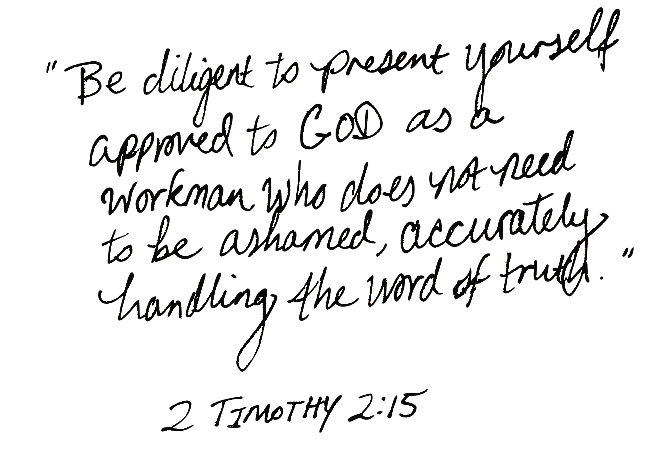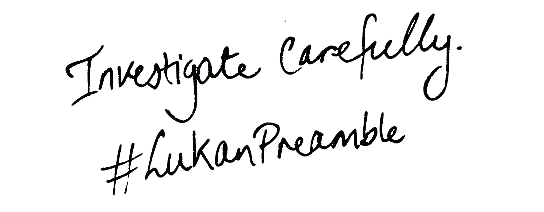This post is an appendix to my Washington Times Communities article, Darwinocracy: The evolution question in American politics.
Does Darwin rule the electorate? Why does a stigma surround those who are skeptical of Darwinism, and how should candidates respond?
Ah, the evolution question. It’s one of the latest politipop culture quizzes posed to American political candidates (Republican candidates, to be specific).
The stigma surrounding some conservatives’ answers to the question is grounded mostly in confusion about what actually encompasses Darwinian evolution. The two core principles of Darwinian evolution are natural selection and common descent with modification. The Galapagos finches, dogs, chickens and horses are a few organisms in which the power of natural selection and artificial selection is blatantly obvious to even the casual observer (my college textbook for political theory class erroneously states that conservatives want to ban Charles Darwin’s theory of natural selection from schools).
Those who are skeptical of evolution are actually skeptical of common descent with modification, because they think there are reasons to believe that natural selection is limited.
Why?
There is evidence that many Darwinian predictions in this area have been inaccurate. To mention a few: The list of vestigial organs in the human body has been reduced to practically nil; there have been out of place fossil discoveries (as well as soft tissue found in dinosaur fossils); there is an immense gap between prokaryotes and eukaryotes; 99% of evidence from molecular biology does not reflect a trend of common descent (if you scrutinize the results of cytochrome C amino acid sequences according to the metabolic needs of an organism, for instance); there is an increasing absence of “junk DNA”; experiments have shown generations of mutating bacteria to not necessarily increase in fitness (biochemist Michael Behe explains that E. coli experiments have shown “Mostly devolution…[t]he lesson of E. coli is that it’s easier for evolution to break things than make things”), and those are experiments on asexually reproducing organisms – the experiments with sexually reproducing organisms are even less thrilling.
Do evolutionists have explanations to avenge all these dead ends of Darwinism?
Of course they do. They generally operate on the circular premise that evolution happened because it must have happened, so the only questions for them involve defining and refining specifically how evolution did it. The possibility of the evidence actually contradicting evolutionary predictions evidently never crosses their minds.
Amusingly, this is similar to what they accuse Biblical creationists of doing – clinging to predictions derived from historical records in the Bible and never daring to consider the possibility that creation didn’t happen.
These rival perspectives run deep in the soul and neither can be dismissed as merely the result of stupidity or ignorance. One difference between the two is that Darwin loyalists have an image advantage thanks to caricaturing media.
In the scant 150 years since the evolutionary ideas of Charles Darwin and Alfred Russel Wallace were formally presented, the handling of evolution from a public relations stand point has been brilliant (as I explained in a college essay that can be read here).
Essentially, Darwin (and his followers) won the public debate by defining who the debate was between: The scientific and the unscientific.
Thus, before much speculation about the different means and limits of evolution appeared, any potential doubt about them was destined to be labeled “unscientific” by the academic majority that was more afraid of being embarrassed than being wrong.
Yet however much popularity and longevity the theory of evolution has appreciated, if we know anything about the history of science, it is that science is tentative and not governed by majority rule (except when it’s absurdly politicized, of course – which is irrelevant to data).
New data often results in subtle changes in scientific positions that are held for a brief time. For instance, the Davson-Danielli model for cell membranes was “generally accepted” by scientists from 1935 up until the early 1970s, when the Singer-Nicolson model offered a better explanation.
Sometimes new data causes a tremendous upset that age-old politically correct establishments have a difficult time tolerating, such as when Aristotelian natural philosophy dominated for about 900 years until the likes of Copernicus, Galileo and Newton gradually chipped away at the likelihood of it.
For all our nearsighted society knows now, Darwin could be the next Aristotle.
—
By the way, some Christians and theists – rightly or wrongly – are convinced that evolution is the process that God used to create life on Earth, while others think there is not sufficient scientific or historical evidence for it. This illustrates that believers can, without squeamishness, leverage evidence for and against evolution.
The same cannot be said for most unbelievers, whose leftist obsession with Darwinian evolution is misguided and not so much evidence-based as it is agenda-driven. If Darwinism is shown to not be entirely true, then the very foundations of their ideologies will be uprooted. The slightest amount of evidence to the contrary risks pulling the rug out from under the feet of naturalism and thus they cannot tolerate it.
—
Q. Do you think evolution should be taught in schools?
This was a question posed to Miss USA contestants earlier this year, and I squirmed the entire time I listened to their bubblegum responses. This isn’t even a difficult question.
Evolution has been so influential in shaping worldviews prevalent in the past century (even affecting Woodrow Wilson’s constitutional philosophy) that you cannot be well-educated without knowing about it.
Furthermore, the most powerful thing you can do for truth is the most devastating thing you can do for error: Thoroughly study it.
Teach the origin of the concept, teach what evolution is observably capable of, and teach what its puzzling limitations are. But to teach that everything about it is settled, unquestionable fact is to undermine and make a mockery of science itself.
Why would any evolutionist be afraid of teaching evolution in its entirety, warts and all?
Well, I’ll admit that most creationists I know have the same story: “I was an evolutionist until I started seriously studying evolution.”
Science is never fully settled. There is data in my college biology textbook that came out just two years before the textbook was published – and new information might one day contradict it (that’s why new editions are constantly being written and published). Those who believe that everything about one principle of one theory of science is “settled fact” appear to be desperately seeking a stable, unwavering substitute for GOD. Science simply cannot offer such a substitute.
LONG OVERDUE UPDATE (10/30/2011):
My “evolution question in politics” column generated many long, thoughtful comments. I was pleasantly surprised by this. I’m glad to see that more and more evolutionists and unbelievers are putting effort into original thought and sharing information in comments – quite an improvement over the short, profane comments I used to get.
Let me begin with posting some of the excellent comments left by the Communities’ very own Politics editor, Jim Picht (I’ll highlight points I find important):
(In response to another commenter)
“”There is no controversy among the science community …” There’s always controversy in the scientific community. That’s not a sign of weakness, but of strength. It’s when people lack the courage of their convictions that they become fundamentalists, whether fundamentalist Christians or fundamentalist secularists. People who have mature confidence don’t mind at all having the weaknesses in their arguments pulled out and examined in minute detail.
Science is as prone to dogmatic thinking as any other facet of human existence. The glory of science is that it has built into the mechanisms for the discovery and elimination of its own dogmas. But in a number of disciplines (climate science and evolutionary biology spring to mind), politicization has created a knee-jerk defensive posture that plays into the hands of people who want to discount science altogether.
Science doesn’t have all the answers, as you observe, and it can’t. It shouldn’t ever pretend to. Yes, admitting to problems and inconsistencies and gaps emboldens critics, and in these fractious times no one ever wants to embolden critics (hence like medieval popes, politicians and scientists today are forced into positions of inerrancy), but whatever the tactical gains, it’s a strategic error not to let it all hang out, warts, ad hoc-ery and all. We don’t know how life began (and evolution isn’t about origins, but about diversity, so what’s the big deal?), we don’t know exactly what the impact is of human activity on climate, and some things that science claims it knows today will be found silly tomorrow. Life goes on, and science is still the best tool we have for figuring out the physical world around us.
There’s no such thing, Chris, as “a true fact based science curriculum.” There’s only tentative truth and facts as we know them. The curriculum can do without dogma, religious or scientific. Science education is a whole lot more fun and a whole lot more positive and powerful a force to create a population of critical and original thinkers when we look at it as a voyage, not a destination. Capital-T Truth may be the destination in principle, but it’s the destination we’ll never achieve. Let’s not mess up young minds and sour them on science by pretending otherwise.” – JWPicht
“…In fact I’m an evolutionary “true believer” through and through. I degreed in life-science and worked in a genetics lab (Howard Hughes Medical Institutes) before wandering off to become an economist. I don’t claim to be an expert in evolution, merely a well-informed layman, but it seems clear to me that Darwin gives us the only scientific game in town for understanding the diversity of life on earth.
Scientists should be very pleased with that, trumpet the successes of the theory, and be excited to grapple with its failures. Instead when they write for the lay public, they defensively act as if they have perfect knowledge of absolute Truth. That’s just silly. Science should upset religious and political beliefs. I have no objection with that. What science should not do is impose its own dogmas. Most scientists are like most economists – they don’t have an agenda, they do try to do good, honest work. But the thought that people like Dawkins (the “village atheist”) don’t have an agenda is laughable, and the defensive posture taken by many scientists is predictably human in the face of the political firestorms they sometimes face. Scientists get paid to be objective, but when they apply for grants, they know that some perspectives are preferred to others.
Scientists usually try to be objective (even when their funding comes from energy companies or the NIH), but they aren’t machines, nor are they monsters of logic. I haven’t argued that scientists politicized evolution. But it has been politicized, and they respond in a knee-jerk defensive way. The fact that you read my comments as blaming the scientists for politicization and saw in them an assumption of dishonesty is indicative to me of that sort of knee-jerk response. All I really said is that a defensive posture that refuses to admit to the outside world the possibility of error is the antithesis of science. More than being paid to be objective (a nonsense proposition in the human world), scientists are paid to think critically. If many of the criticisms leveled at evolutionary biology are trivially rebutted, fine, but there’s a great deal of disagreement within the scientific community about the hows of evolution, there’s incomplete understanding about the process, there are gaps in our understanding. That’s the way it is in science.” – JWPicht
“Amanda, arguments about evolution itself were a predictable response to your article. What has been ignored is the question of whether belief one way or another in evolution is relevant to a person’s qualifications for public office.
As it happens, I’m quite convinced that evolution is the only scientific explanation for the diversity of life on earth. It’s imperfect, but scientific understanding always is. We don’t every know the absolute truth, but only tentative truths. That’s not a defect of scientific models and method, and if we understand the limits of scientific thinking, they also underscore its power.
But I really don’t care what Rick Perry believes about evolution, and I’m puzzled why anyone wants to know his views on the subject. I don’t care about his views on quantum mechanics, either. What I want to know is what he plans to do about the deficit, unemployment, the deployment of American forces abroad, when he thinks it’s appropriate to intervene in the affairs of another country, and so on. Unless we want the White House to set science curricula in American schools (a serious violation of the principles of minimalist federal government that so many conservatives claim to admire), his views on science just aren’t an issue. (If he wants the federal government to start dictating what’s taught in biology classes, then we have an issue.)
Liberals take disbelief in evolution as a symptom of general intellectual laziness or stupidity, hence they see it as disqualifying for high office. As an economist, I might see their inability to understand the destructive effects of minimum wage on unskilled black men under 30 as equally a symptom of stupidity, or perhaps racial malice and moral degeneracy. I prefer to think that they place emphasis on different outcomes than I do on the basis of different values, but it remains the case their views on minimum wage and their economic literacy are much more important qualifications for public office than their views on evolution.
We all think that whatever it is that interests us is what’s really important. I think that it’s terrible that kids don’t study economics more in school, my wife (a professor of Romance languages) is convinced that learning languages is the key to success, and our neighbor (a professor of math) thinks that math is what people really need to know. As it happens, geophysicists can do their jobs just fine without giving a second thought to evolution. My son’s piano teacher need never give a thought to economics, and I don’t care whether the person flying my airplane has ever read Anna Karenina, so long as he’s read his pilot manuals.
The evolution question is just a political shibboleth. It turns a matter of science into just another religious test. It’s not a constructive question, but destructive. It’s not a constructive question, but destructive. The more candidates talk about their views on evolution, the less I like them, whatever their views happen to be. The more we focus on the subject, the less interested we are in serious policy debates and the more interested in making political points. I wish that in response to the question, “do you believe in evolution,” candidates would simply answer, “none of your d*** business.”” – JWPicht
One reason why I wrote the article is because I noticed that no matter how candidates respond to the EQ (evolution question), the media or opposition (which might often be the same thing) still fixate on the issue. For instance, in her debate with Chris Coons, Christine O’Donnell said that her personal view of evolution was irrelevant to the discussion, and that she would allow local school districts to have the freedom to educate their children as they saw fit. Coons insisted that the people of Delaware wanted to know O’Donnell’s personal views on the issue anyway.
(Funny that a candidate’s personal views on abortion aren’t considered relevant as long as they support Roe v. Wade, isn’t it?)
This brings me to the inference of a candidate doubting Darwin in the first place.
“So pardon me for challenging you Amanda and questioning whether it is authority that is being challenged by the Americans. When so many poorly educated people feel free to be dubious about the scientific evidence for evolution when the principal influence on their lives is a pastor who can preach to them that evolution is the work of Satan I can’t help but wonder whether you should reconsider that patriotic claim you make on the behalf of your people.”
– sjbolton77
“As has already been noted, Republican candidates are in thrall to an utterly ignorant Republican electorate. It is therefore an entirely sensible thing for any liberal to do to enquire what the candidate thinks about such things as evolutionary theory. There answers might appeal to the great unwashed Republican masses, but it reveals to everyone else with a vote that these people are unprincipled opportunists. So, they know what to expect if they elect them.”
– Mike Magee
This is point has actually crossed my mind before. I know there are plenty of people (Americans included) who blindly accept the ideas of creation and evolution without seriously questioning the concepts. Many people defer to popular evolutionists without understanding science (I call their activity “Reader’s Digest science” – no offense to RD, but you know…), and many defer to creationists without understanding science. I’ve known Christians who believed both and never even suspected they contradicted each other. Some people just aren’t that interested in science. They’re caught up in the present, and aren’t deep thinkers.
But lo and behold, there are intellectuals all over the map in this debate who do think deeply and do research. There are also some lay people on the sidelines that occasionally take a look at the scrimmaging and find one side to be more convincing than the other. Because of this, it is downright wrong to dismiss an evolutionary unbeliever as an idiot.
What do I think about political candidates’ personal views of Darwinian evolution?
Well, I don’t mind as long as they don’t operate on a consistently naturalistic philosophy. Extracting naturalism from evolutionism can result in many things that I find morally reprehensible (i.e., basing the value of life on evolutionary embryology could be used to make an argument in favor of abortion).
SEE ALSO:
Would You Vote For An Atheist?


















The simplest thing to me would be to simply ask, “What bearing does my belief in the origin of life, the universe and everything have on my ability to govern? For that matter, what relevance does a scientist’s belief in those things have in his or her ability to calculate rocket trajectories or accurately read a CAT scan?”
You are quite right, Amanda. There are incredibly uninformed people on both sides of this debate. I regularly encounter people (including fellow PhDs) who have no idea about the evidence related to evolution, but they believe it because they were taught it in school and because it is the “scientific consensus.” I also regularly encounter people (including fellow PhDs) who have no idea about the evidence related to evolution but they don’t believe it because someone told them that it “contradicts the Bible.” Both kinds of people have no business commenting on the debate.
On the other hand, I regularly encounter people (including fellow PhDs) who DO have a great deal of knowledge about the evidence related to evolution, and they have widely-ranging views on the subject. To simply ignore the ones who disagree with you is not only closed-minded, it is decidedly anti-science.
Dzieki wieloletniemu doswiadczeniu w zakresie specjalistycznych pokryc galwanicznych oraz wysokim kwalifikacjom naszych specjalistów jestesmy w stanie sprostac nawet najbardziej wyszukanym wymaganiom naszych Klientów, zapewniajac jednoczesnie konkurencyjny poziom cen naszych uslug.
As soon as I detected this internet site I went on reddit to share some of the love with them.